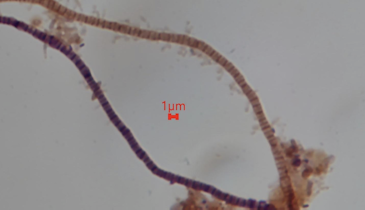
Rey Davila, right, chief solids operator, and Jeremy Thompson, plant supervisor, discuss the performance of the disc filtration system (Kruger USA) at the South Mesquite Creek treatment plant.
Wastewater treatment is Rey Davila’s passion.
Recently retired, he loved his job as chief of solids operations at the South Mesquite Creek Regional Wastewater Treatment Plant. He’s committed to operator associations and the Water Environment Federation’s Operations...









